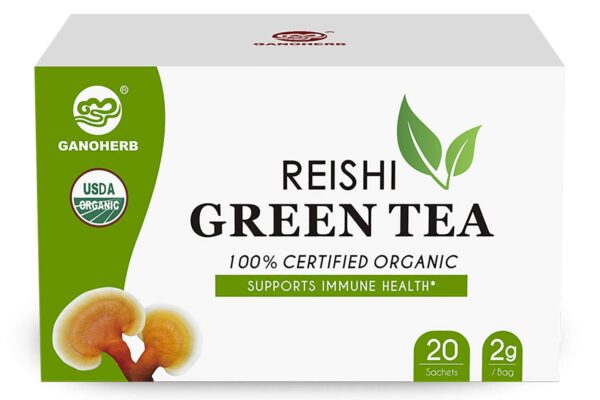Blog
Organo Gold Lawsuit

This matter is before the Court on Organo Gold International Inc’s (“Organo”) motion for a Temporary Restraining Order and Preliminary Injunction. Dkt # 10.
L&A Ventura asserts that the non-compete clauses at issue in this case are unenforceable, citing cases which back their claim. Unfortunately, however, the Court disagrees.
Distributor Application
Multilevel marketing (MLM) is a form of business model which involves recruiting individuals as independent distributors to sell a company’s goods or services to others and earn commissions through this strategy.
Distributors may qualify for merchandise and bonuses from their company, but to do so they must meet certain criteria such as paying an annual fee and meeting minimum monthly sales volumes. Furthermore, distributors must agree to keep company information confidential.
This agreement also contains a non-compete clause, which prohibits distributors from engaging in any other opportunities that offer Ganoderma-based products. This provision must be upheld in order to prevent distributors from exploiting proprietary information or exploiting brand equity to gain free products.
The Court notes that neither defendant is challenging the legality of Organo Gold’s Distributor Agreement. Holton Buggs serves as Vice President of Sales and “Crown Diamond Marketing Associate” for Organo Gold, a network marketing company selling household products. He lives in Texas but travels nationwide as part of his business activities.
Evidence indicates that Buggs utilized AmeriSciences distributors as recruits for Organo. He did so by portraying himself as a business leader and employing similar recruitment techniques used at AmeriSciences. Furthermore, he offered anyone joining his team an incentive: a car.
Court records demonstrate that AmeriSciences’ distributor list was valuable proprietary information that easily qualified as trade secret. AmeriSciences employed Skirm to maintain its database containing each distributor’s upline number, address, email, phone number, social security number, username/password combination for user login access to maintain database as well as their birthdate/time/lifetime rank status information and genealogies of relationships among upline members and downlines.
As evidence is presented against them, the Court denied Defendants’ Motion to Dismiss and Transfer Venue; however, the decision remains reserved regarding whether Defendants can establish that Idaho is an inappropriate venue.
Solicitation of Distributors
This matter comes before the Court for consideration on Organo Gold Int’l, Inc.’s (“Organo”) Motion for a Temporary Restraining Order and Preliminary Injunction, while defendants L&A Ventura Management Inc (“L&A Ventura”) and Luis Ventura (“Ventura”) have filed Opposition.
Organo Gold products, which are sold as health supplements with Ganoderma Lucidum as their key component, have been the subject of both an emergency temporary restraining order (TRO) and preliminary injunction request in Delaware. According to their marketing, these coffee and other products contain “a unique blend of natural ingredients that provide weight loss, energy production and increased metabolism benefits – an argument denied by Organo Gold itself. A preliminary injunction order seeks to prevent defendants from selling this product while simultaneously demanding damages and attorneys’ fees be paid from defendants.
Wright testified during oral argument that DeWayne had an inherent conflict of interest as the human resources administrator for PSD due to his connection with Organo Gold. DeWayne was instructed not to engage in actions outside established policies, practices and procedures which might appear as favoritism, retaliation, reward or any action that might appear to lure any PSD employee to purchase Organo Gold products; similarly he couldn’t do anything which might appear as recruitment of district employees into his own Organo Gold business.
According to the temporary restraining order and preliminary injunction complaint, defendants violated this restriction by engaging in soliciting Organo Gold products within Delaware through social media accounts by posting about them and soliciting sales there. These posts, which were available to the general public and featured pictures of Organo Gold employees in the field, directed toward potential Organo Gold customers and violated the Racketeer Influenced Corrupt Organizations Act, according to the TRO and preliminary injunction complaint. Plaintiff claims this conduct violates California’s Consumer Fraud Act. Additionally, their TRO and preliminary injunction complaint alleges breach of contract; defendants have responded to these claims and requested they be dismissed by the court.
Non-Compete Clauses
The Court finds that the defendants did not present sufficient evidence to substantiate their argument that non-compete clauses are unenforceable. As part of its determinations, the Court notes that both non-compete clauses were signed under Washington law as part of the Distributor Application and Policies and Procedures document, and found them reasonable in scope. To be specific, Organo Gold’s non-compete clause prohibits terminated distributors from “particip[ing] in any opportunity that directly competes with Organo Gold in offering Ganoderma-based products.” Dkt # 11 (Balthuis Decl.) Ex. 1 at 6. While Ganoderma products represent only a relatively minor portion of Organo’s overall business portfolio, such restrictions serve to safeguard Organo’s distribution network and goodwill.
Additionally, the Court holds that Defendants failed to present sufficient proof of actual harm; rather they relied on hearsay statements regarding Organo’s internal difficulties for proof. Notwithstanding such assertions, however, evidence shows significant numbers of distributors having defected from Organo to TLC over time.
According to the record, defendants Cocheu and Gallardo encouraged other AmeriSciences distributors to join them, while Buggs attempted to recruit Organo distributors by providing information about Organo products directly. Furthermore, records indicate that both Cocheu and Gallardo reaped significant financial benefits as a result of their actions.
In another decision, the Court has considered Defendants’ argument that Idaho is an unreasonable forum. Herein, it should be noted that Defendants are an international marketing corporation operating offices in two states bordering Idaho as part of its national distribution network; their counsel reside within these states while one of Defendant Buggs travels frequently as part of his business activities.
As such, the Court deems the balance of interests to tip in favor of granting Plaintiff’s Motion for Temporary Restraining Order and Preliminary Injunction. Once all facts and arguments submitted by both sides have been considered by the court, a decision on merit will be issued; for now though, Defendants’ Motion for Reconsideration will be denied and this matter stayed to allow further development of facts to occur.
Damages
Plaintiffs seek not only unreimbursed expenses, but also to recover lost earnings due to being prevented from engaging in additional business activities that would provide them with commissions from new sales activities. Furthermore, they assert they should receive damages for wrongful termination of employment.
The defendants assert that this lawsuit lacks merit and should be dismissed due to lack of personal jurisdiction, however the court disagreed and issued a memorandum opinion in favor of the plaintiffs and denied their motions to quash deposition notices and for protective orders.
Defendants maintain that plaintiffs have failed to establish that they have experienced injury and that it will likely be permanent, however the court disagrees and has found them with standing to pursue their claims for financial compensation.
According to the Complaint, defendants’ negligence in providing adequate warnings, instructions, and ingredient content information about coffee products containing Ganoderma Lucidum has caused and will continue to cause injury to plaintiffs and similarly situated parties. It also seeks certification of a putative class of all Delaware residents who purchased Organo Gold products without being provided a warning about potential Ganoderma Lucidum risks.
Plaintiffs allege that OG International, OG Holdings and OG Management violated their Promotion Agreement by failing to make counsel available for Hong Kong defendants appearing in United States proceedings. Although this obligation is stipulated in their Promotion Agreement, defendants asserted it would still promote business within Contract Territory using “its best efforts”. Nonetheless, they argued their failure was harmless since their decision was reasonable.
Plaintiffs also alleged that Buggs violated the Promotion Agreement by pitching Organo Gold to AmeriScience distributors, constituting tortious interference with AmeriScience’s legitimate business operations and disrupting competitors’ distribution channels. However, Tow could not tie her tortious interference claim directly to Organo’s profits; thus invalidating Tow’s claim for financial damages.




